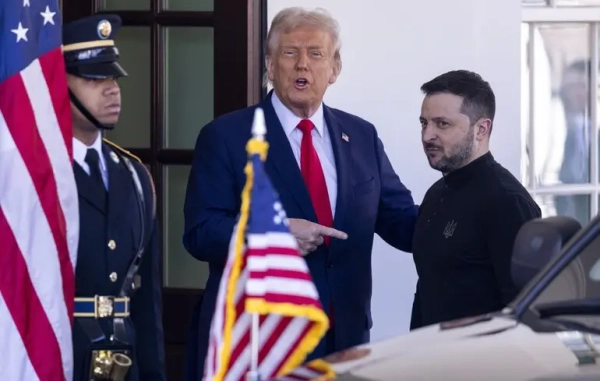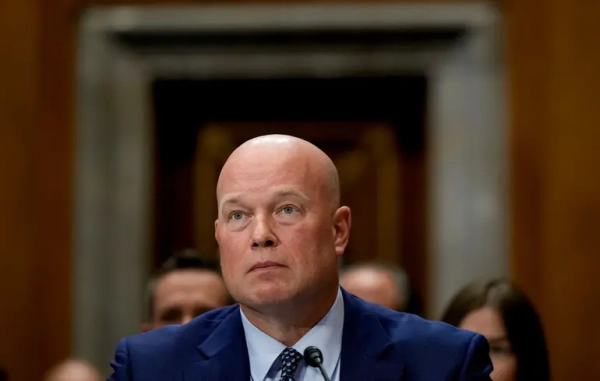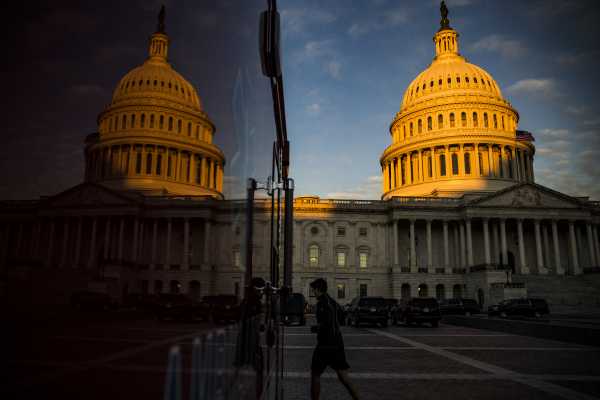
Attorney General William Barr’s summary of special counsel Robert Mueller’s report has not resolved all of the disputes surrounding Donald Trump’s ties to Russia during the 2016 election. But the reaction to it has revealed one of the ways in which American politics is deeply and profoundly broken.
Democrats have responded to Barr’s summary by calling the attorney general’s impartiality into question (not entirely without reason). Leading members of Congress have raised the alarm about “very concerning discrepancies and final decision making at the Justice Department” and are pushing for the full release of Mueller’s report and for Barr to testify under oath.
Congressional Republicans, meanwhile, have responded by blasting “the biased media” for spreading “a collective scam and fraud.” The chair of the Senate Judiciary Committee, Sen. Lindsey Graham (R-SC), even called for investigations into the FBI’s investigation itself, to see if the bureau’s pursuit of Trump and his allies was in any way improper.
A quick gander at social media shows this polarized reaction from partisan politicians is reflected in their parties’ respective media surrogates and rank-and-file voters. There’s not even a pretense of neutrality: Everyone is reading what they want into Barr’s letter, establishing a reality in which their side is right and the other side is making things up.
Barr’s document is particularly vague on some points, an ambiguity heightened by the fact that no one weighing in — from either side — has read the full report. But even the most unequivocal report would be subject to the deeper forces: the death of the neutral arbiter.
All in all, this reflects a collapse in trust in two core American institutions: politically independent federal law enforcement and the free press. This lack of faith, combined with a concomitant rise in partisanship, means that virtually every major political event is interpreted through a partisan lens. There’s no political institution widely accepted as being neutral anymore; instead, Americans judge the quality of the country’s leading institutions based on how favorable each one’s outputs are to their political interests.
The big problems haunting the Mueller debate
The fact of the decline in trust in core American institutions is well established and undeniable.
Two charts from a 2018 RAND Corporation report called “Truth Decay” tell the story elegantly. The first looks at long-term Pew data on Americans’ trust in government, finding a significant decline beginning in the mid-’60s. The data seems to track real-world government failures, such as the Vietnam War, Watergate, and the war in Iraq:
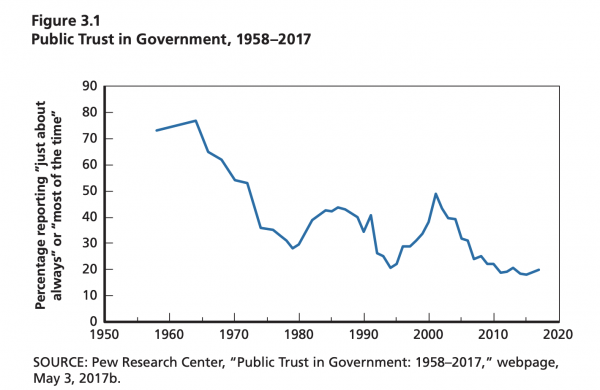
The second chart looks at public confidence in Congress, specifically, as well as the media. Once again, it shows a pretty clear decline from peaks several decades ago.
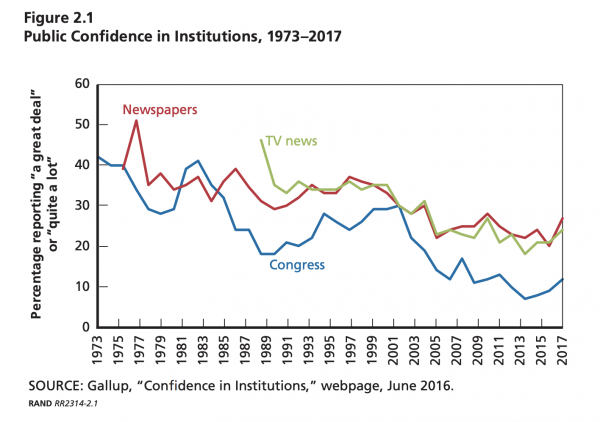
The causes of these declines in faith in public institutions are complex. Some of it reflects actual policy and reporting failures, like the Iraq WMD debacle. Some of it reflects attempts by political actors to delegitimize these institutions, like the conservative campaign against the “liberal media” and Trump’s cries of “fake news.” It’s difficult — maybe even impossible — to separate out the relative causal power of these different events.
But this decline of faith intersects with a separate and equally important trend: rising partisanship. While people were losing faith in core institutions, the major political parties were becoming much more ideologically unified — with liberals sorting into the Democratic Party and conservatives becoming Republicans.
Like the decline in trust, the rise in polarization has complex and intertwined causes. The political aftermath of the civil rights movement, the politicization of evangelical Christianity, and the rise of the modern conservative movement all play major parts in this story. The result is that Americans have come to closely identify their social groups, like race or religion, with their political party. Lee Drutman, a senior fellow at New America, put it well in a Vox essay in September 2017:
When your partisan identity becomes so closely tied to your personal identity, information that challenges your political beliefs becomes a more existential threat — changing your mind or even admitting you might be wrong feels like a major betrayal. So partisans come to believe that their side has to be right — it just has to be — because the alternative is unthinkable.
Like polarization itself, the problem isn’t symmetrical on right and left. “Tribal epistemology,” as my colleague Dave Roberts terms it, is far more prevalent on the right, with media organizations like Fox News dedicated to selling comforting, often false, information to viewers.
But Democrats are hardly immune to confirmation bias. A number of laboratory experiments and surveys have shown that partisans on both sides of the political aisle work to fit facts into their existing narrative and beliefs. Polarization makes people interpret facts to fit their feelings.
This intersects with the decline of faith in political institutions in a particularly nasty way.
The less confidence people have in media and government institutions, the harder it is for information coming from one of these sources to override their partisan judgments. There are very few sources that are seen as politically neutral, and the quality of information is determined by the perceived political alignment of the source. A majority of Americans told Gallup pollsters in 2017 that they could not name a single news organization they would describe as “objective”; among those who could, Republicans named Fox News while Democrats typically cited one of several mainstream media outlets.
Every piece of information is evaluated less on the merits and more on its provenance. Court rulings are evaluated by whether the deciding judge was appointed by a Republican or a Democrat. Congressional reports are judged by which party controlled the committee that produced them. Media watchdogs on the left and right scrutinize every piece of work in the mainstream media for “bias.”
The reaction to the Barr letter was no exception. Democrats see the attorney general as a hackish Trump loyalist and evaluate the letter through that lens. Republicans see the media as in the tank for the Democrats and thus see the letter as confirmation that they were right to mistrust reporters on the Trump-Russia beat.
The result is that partisans, from politicians on down to rank-and-file voters, are living in two distinct worlds. One of those is more connected to reality than the other, to be sure, but hardly perfect. On complex political issues like Trump’s connection to Russia, where the truth of the matter is by its nature difficult to determine, people will interpret reality in a way that flatters their biases.
This leads me to be profoundly pessimistic about the future of the Mueller investigation. Even if Mueller’s full report is released in a timely fashion — and that’s still an “if” at this point, not a “when” — people will read it differently, in each case trying to vindicate their narrative of events. There will never be a shared sense of reality about what really happened in 2016 or whether Trump obstructed justice during the investigation. No authoritative document could overcome the deep systemic forces that produced this dispute.
All of this raises a series of disturbing questions: How much further can this political relativism be pushed? What happens when the subject of partisan dispute isn’t election interference, but the legitimacy of the vote counting itself?
And most broadly, how can American democracy work when there are essentially two polities living in two separate realities?
Sourse: vox.com
